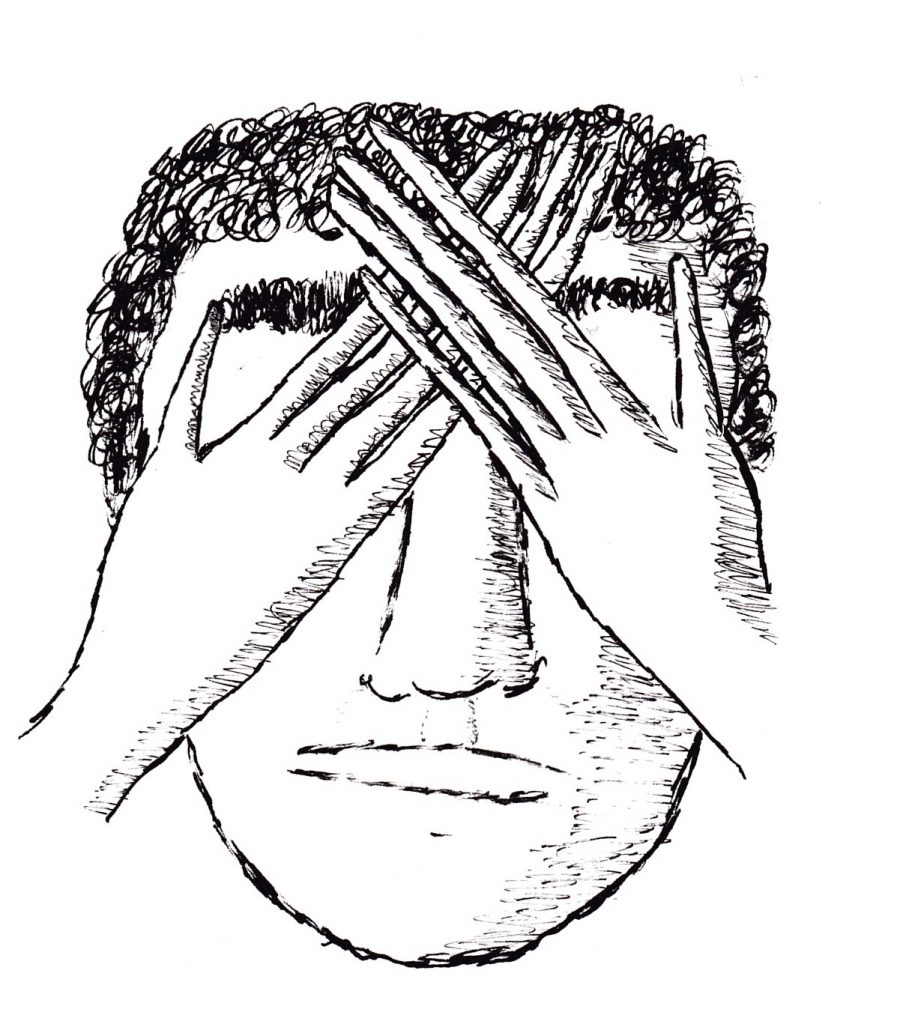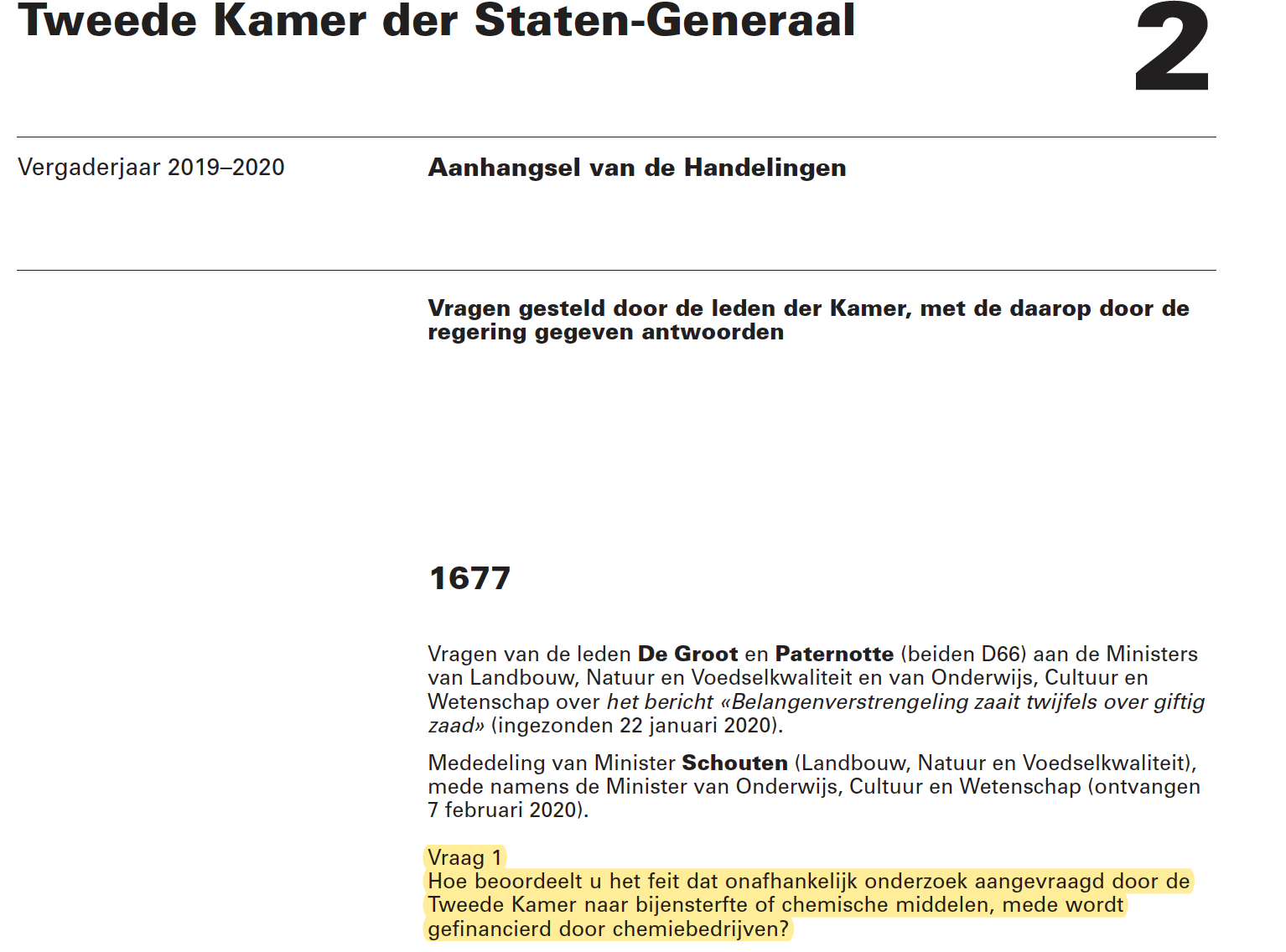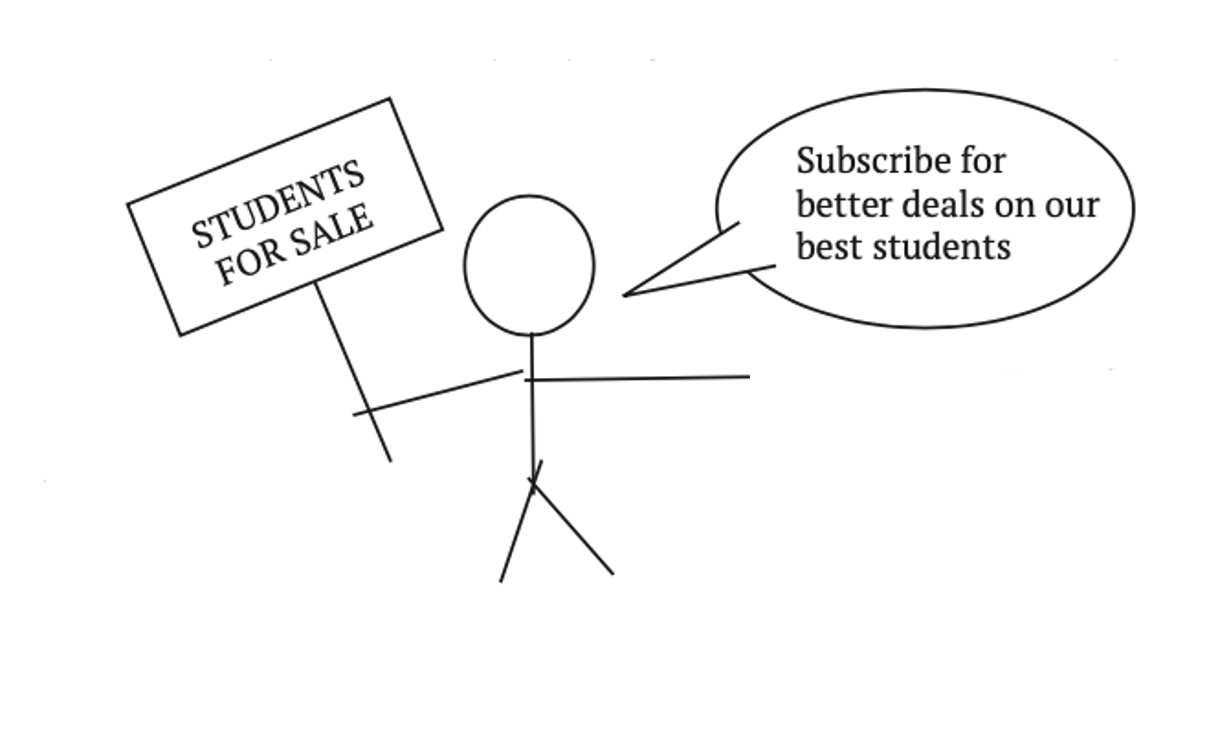Claiming ignorance does not mean innocence

If innocence is ignorance, as Kierkegaard suggests, it means that we cannot be innocent without being ignorant. Then, how blameless are we for the climate and social problems we are facing? To point out the enemy or the problem requires knowledge. Knowledge is the opposite of ignorance, and so by pointing out the enemy or the problem, we are no longer innocent. The true innocent doesn’t know, has no questions, experiences a paradise of consequences without cause, and feels no/ little remorse from decisions that they take. It sounds so wonderful that we often pretend to be ignorant to achieve innocence. But, if it’s true that we cannot be innocent without being ignorant, that doesn’t mean being ignorant makes us innocent.
One example of this “trying to be innocent by pretending to be ignorant” is the position of many universities, WUR included, on sexual violence and the rape culture among staff and students within their walls. Months ago, Amnesty International Netherlands published a survey concerning this topic, revealing terrifying information: 11% of female and 1% of male students experience rape during their university studies. 67% of them suffer psychological, sexual or social problems as a result. The first reaction of many universities was: “we didn’t know about it”.
It’s important to mention that the survey only includes Dutch-speaking students. Considering the number of internationals in Wageningen, this number may vary for better or, most likely as Dawn Cheong’s work suggests, for worse. Regardless, we can’t deny the existence of the problem; we cannot use the inaccuracy of the data as an excuse to refuse reality and feel innocent about it.
The fact that we know that sexual violence exists, the fact that Rector Magnificus, Arthur Mol, placed his shoe
and wrote that the Executive Board stands for consent on the symbolic event that happened on September 22 outside Forum, after the decision of not signing Amnesty International Manifesto, is acknowledgement enough that they are not innocent; none of us are.
For the university authorities, it might be simple to ignore what doesn’t appear to exist at first sight, because let’s be honest: who knows where to go on campus if they’ve experienced or want to talk about sexual harassment? Besides the trustful friend or teacher, most of the WUR community doesn’t know where to go. With reported incidents so low, it is no surprise that faking ignorance and feeling innocent has become easy. If we add to this the bureaucratic steps that compiling a formal report requires, the surprise becomes even smaller.
For us as individuals it might be simple as well. We might not know someone who was a victim of this rape culture, but we came to study and study we did, our eyes, ears and hearts are closed to what’s beyond our Wageningen bubble. Are we innocent or merely ignorant?
In an effort to answer this, a working group has been formed at the university to come up with an action plan to address sexual violence at WUR. This plan must aim to create a safe environment for everyone. Prevention and awareness are some of the main focus points, but also providing the right means of information to know what to do in case anyone faces the situation.
In the meantime we should talk about it, raise our voice, acknowledge its existence and fight against ignorance. We shouldn’t be surprised by the numbers, we should take them personally and eradicate them. Big responsibility lies on the table. Bringing up the tools to tear off the veil of a comfortable ignorance is sometimes tricky and always painful. Though fake, the world of innocence is hard to leave, but is the least we can do.
Once we recognize the existence of a problem name it, sexual violence, discrimination, climate change, etc., we lose our innocence towards it and become accomplices of it until we fight against it with all that is in our hands. We can only improve the world if we stop begging for innocence and recognize our responsibility within. Only if we renounce the comfortable life of ignorance, will we be able to change the causes and stop being victims of consequences.
In the words of Jose Saramago, “If you can see, look. If you can look, repair”.
Fernando G.


